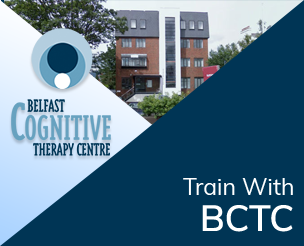The ways in which we speak about mental ill health are crucial. It is only in recent decades that conversations about mental health have really begun to open up for the public.
Stigma
There are many ways in which the language of mental health has been stigmatising. Whilst we are making strides in addressing this, it is important to acknowledge how far we have come.
The first attempts to classify mental ill health and learning disability left much to be desired – in 1840, the US census listed only two options: ‘idiot’ or ‘insane’. As the number of classifications increased over the years as professional understanding began to develop, the number of perjorative and stigmatising terms also increased.
‘Spastic’, ‘hysterical’, ‘schizo’ and ‘psycho’ were but a few of the terms used to stigmatise and shun people dealing with mental health difficulties. Whilst we are seeing large decreases in these terms, and a better understanding of mental ill health overall, there are still difficulties to be addressed.
When our understanding of mental ill health is lacking, it is easy to fall into a trap of labelling a whole person. We may see someone as ‘lazy’, when in fact, we need to appreciate that their depressive fatigue has made it difficult to even get out of bed that morning, on top of having slept only two hours. Not to mention that the black cloud of depression has made them question whether they can carry on, but some part of them is still fighting to try. We do not see these things from the outside looking in, and they’re easily missed.
We may become frustrated and see someone as intentionally ‘difficult’ when they cannot seem to accept when we tell them they are not so worthless, or ugly, or unlikeable, as they believe themselves to be. It looks so obvious to us, so why can’t they see it? But what we must remember is that this conversation is only a fraction of their life, and the emotional charge carried by their negative self-belief can make them blind to our logical plea for them to see themselves as we see them. They would like to believe us, but their anxiety, or guilt, or shame, blocks them for the time being.
A behaviour or a thought can be unhelpful, but it is not the whole person, and we can only ever see the tip of the iceberg. We often don’t see the hardest battles. Sometimes, however, we do, but do not realise it – for example, when someone with depression or social anxiety manages to attend a social outing, smiling and joking with us. They are trying hard in that moment to be present, to move forward – and all that effort works beneath the surface. And we do not see the exhaustion that can come afterward.
Accessibility
Psychology was once the sole domain of ‘learned men’ who spoke of pathology and psychosis and neuroses. Clinical jargon abounded and mental illness was pathologised and categorised. It was simply not accessible to the public – the language was almost indecipherable to the layperson.
Now, as our understanding of mental ill health and brain function increases, we are able to make this knowledge simpler and more digestible. When our concentration and memory are reduced by depression or anxiety, we need it to be simple. Diagnostic manuals are becoming clearer, and practitioners’ abilities to communicate with their clients and patients are being refined all the time.
Identification
Identifying with a diagnosis or mental health label can get in the way of recovery. When we see ourselves as an illness, it can be incredibly limiting.
We would not say, ‘I am a stomach ache’ or ‘I am a migraine’. These are conditions that we have, rather than who we are. So when we label ourselves as ‘depressed’ or ‘anxious’ or ‘anorexic’, for instance, we begin to unconsciously make it part of our identity, part of who we are as people. And this can create a sense that we’ll never move past them.
It can also negatively impact our ability to recognise changes in the severity of symptoms. If we ‘are depressed’, we can start viewing this as a permanent state of affairs that never worsens or gets better. This then blocks us from more accurately seeing what affects the depression, what can help it, what progress is being made. Our understanding of mental ill health is now showing that these conditions exist on a spectrum of severity, rather than categorically ‘depressed or not depressed’ – identifying these shifts is crucial.
Whilst difficulties with mental health can persist for many years, and in some cases never go completely, we can influence how much we perceive them as part of ourselves. By making the shift to acknowledging that ‘I have depression and/or anxiety etc.’, we begin to separate the condition from our identity. It can certainly feel like mental ill health robs us of our identity at times – we don’t need it to become our identity too.
Speaking About Suicide
The term ‘committed’ suicide is now thankfully being seen as outdated. The term originated in that it was illegal to take one’s own life – thus implying a criminal or sinful act. In circumstances where suicide has occurred, there is enough pain without adding these labels onto someone who was already suffering deeply.
The phrase ‘died by suicide’ is more apt, and better able to convey that it was a mental health difficulty that led to their death, not a moral failing on their part.
If you would like to speak to a therapist, you are welcome to call us on 028 9065 0060.


